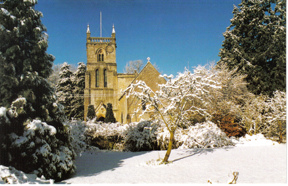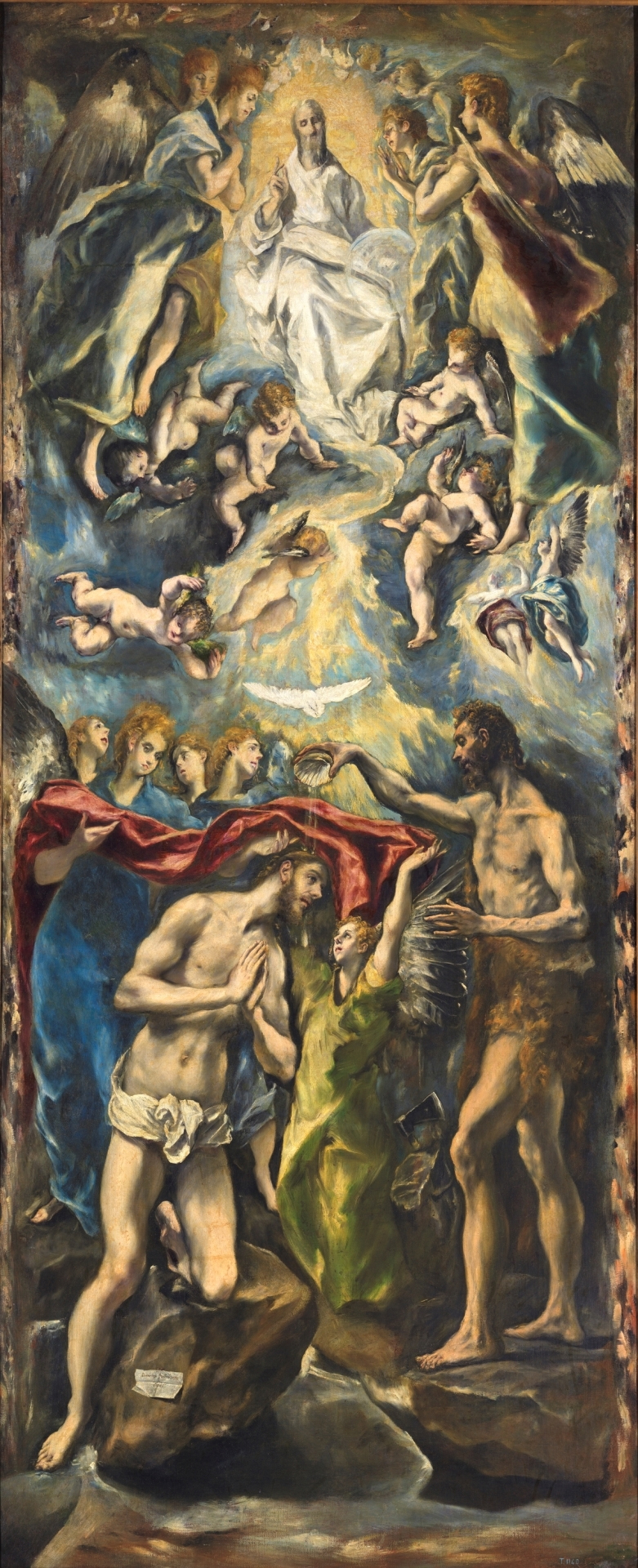

El Greco
Follow your dream - Matthew 5: 1-12/Hebrews 12: 18–24
I remember a film that I saw, I think it was ET, where one of the characters is consumed with a desire to build some kind of creation that has gripped his imagination. Again and again the character attempts to recreate what he sees. Eventually it becomes clear that it’s a vision of something that has not yet happened but will come into being with time.
That idea has always fascinated me and I suppose it may be true of each of us that we are working with a vision that is uniquely our own. Working to realise a dream that we have had as a young person. Whatever that dream was, it becomes a lifetime passion. That passion can express itself in many ways. It may be a passion for business, or maybe a passion for teaching, but whatever our passion we’ll spend the whole of our lives pursuing it!
I want to take the example of the artist El Greco because he had a unique vision that set him apart from others. Here’s what one commentator has written about him: ‘Few artists stick out from the standard tale of western painting more pointedly than El Greco, the great outlier of the late 16th Century. Deeply religious, passionately single-minded, he merged the art traditions of three different countries and found his own unsettling painterly language, one that took a very long time to find its most receptive audience. Flip through the pages of a textbook or wander through the permanent collection of a major museum and you can sometimes fool yourself that art history is a clear and predictable progression, one style and one century inevitably giving way to the next. But art history, we know, isn’t nearly so simple, and El Greco, like few other painters, gives the great delight of seeing that story disrupted and contradicted.’ Jason Farago
The words that caught my attention were ‘Passionately single minded…he found his own unsettling painterly language’. That’s what I’m describing, a vision that was uniquely his own that he worked on throughout his life. That vision can inspire great works of art, or great achievements in medicine, technology, political leadership and indeed sanctity.
Take as an example the late Pope John Paul II, credited by many with bringing down the communist regime of his own country, Poland. As a young man Pope John Paul was deeply moved by the example of Pier Giorgio Frassati. You won’t have heard of him but he inspired the future Pope with a passion for the poor and marginalised. Frassati was often heard to say, ‘charity is not enough; we need social reform’. He died of polio at the age of 24, but his life and death influenced the young Karol Wojyla, who as Pope John Paul II, described Frassati as ‘a man of the eight beatitudes’. So what did he mean by that?
A saint is ‘a man, a woman, or a child of the eight Beatitudes’. That’s not to say a saint can, as it were, tick all eight boxes. Just as each of us express ourselves in different ways so too we can express our passion in a variety of ways. Each of the beatitudes describes a different sort of passion but all the Beatitudes embrace the rest. One expositor of the beatitudes expressed it in this way, pointing to the sixth beatitude. ‘Purity of Heart is to will one thing’. This he saidis a commentary on them all. The saints are those who ‘will one thing’, who are undivided in their intentions. This single minded quest to follow our vision will define the way each of us live our lives.
One of my favourite saints is Saint Don Bosco, a saint who pursued his passion for fun and laughter and taught by love and magic. He is the patron saint of conjurors! After Mass in his village church, Don Bosco would gather the children of the poor around him and tell them bible stories, illustrating them by juggling and sleight of hand. St. Don Bosco is important because he shows us that the single minded pursuit of our passion, while always a serious business, can still be fun. A saint is someone who makes goodness attractive by using the talents they have to bring joy to others. The Anglican tradition remembers and celebrates the lives of many different types of saints. Some of those saints are famous, but the vast majority of the saints remain unsung, and it is important that we deliberately give thanks for those hidden and forgotten saints. The saints who sustain our local communities, serve on parish councils, teach our children, care for refugees, or farm our fields, conserve and preserve our environment, all of them are pursuing a vision to make the world a better place.
For all of us It’s hard to ‘will one thing’ when you are struggling to cope with the multiple commitments of home and work, but the beatitudes do remind us that even in the struggles of life, and indeed often through the struggles the saint can shine, making goodness attractive whilst also shining a light on all of us.
Rev. Simon Brignall
Today, all Saints day we give thanks for all who have shone a light in our lives. There will be an opportunity to light a candle in memory of those who have now passed on but are not forgotten.
A prayer for peace in the Holy land
O God of all justice and peace
we cry out to you in the midst of the pain and trauma
of violence and fear which prevails in the Holy Land.
Be with those who need you in these days of suffering;
we pray for people of all faiths – Jews, Muslims and Christians and for all people of the land. While we pray to you, O Lord, for an end to violence and the establishment of peace, we also call for you to bring justice and equity to the peoples.
Guide us into your kingdom where all people are treated with dignity and honour as your children for, to all of us, you are our Heavenly Father.
In Jesus’ name we pray. Amen
I am contactable from Thursday to Sunday
